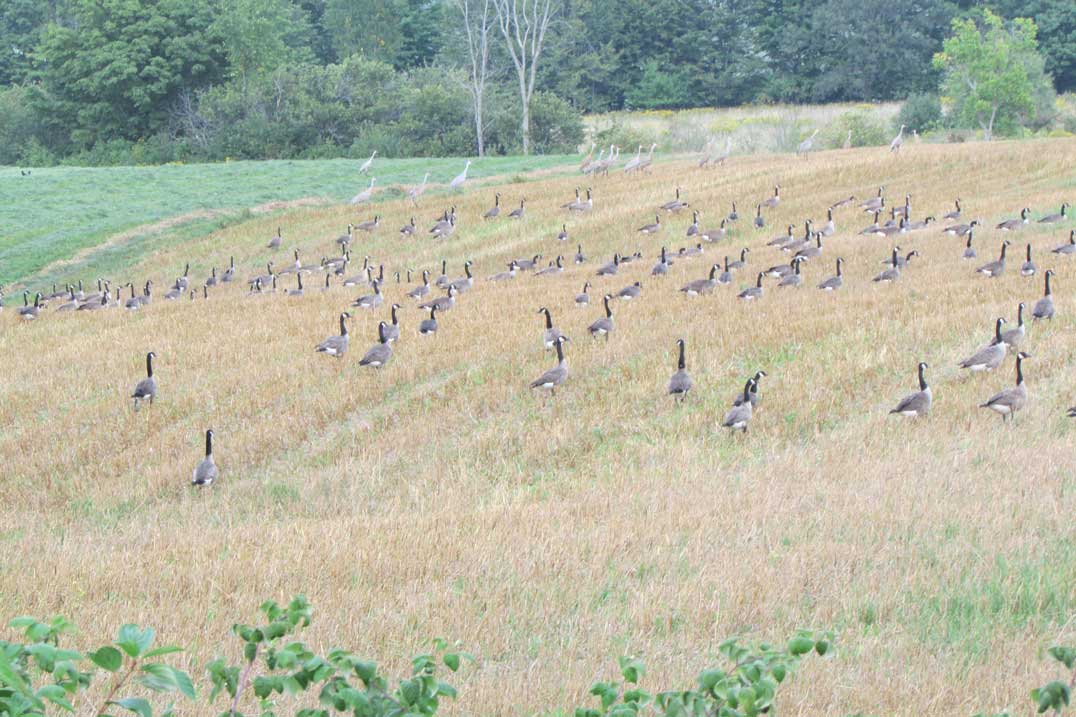The planning is speeding along as citizen groups in several Manitoulin Island communities prepare to host refugee families.
The settlement committee in Little Current, for example, already knows that the refugee family they will be welcoming into Canadian society will be coming from Eritrea, from that part of northern east Africa called “the horn of Africa” where it protrudes into the Red Sea and which also includes Sudan, Ethiopia (of which Eritrea was, until recently, a part), Somalia and tiny Djibouti.
Eritrea’s coastline is on the Red Sea, into which the Suez Canal delivers commercial shipping traffic the short distance from Port Said on Egypt’s Mediterranean coast (the alternative to the long haul all around the continent of Africa for cargo bound to or from destinations in India, China and other Asian nations.)
Eritrea’s near neighbour, Somalia, has become infamous in recent years for the activities of pirates operating out of that nation’s ports and preying on cargo ships downbound from the Suez Canal or headed northwards to enter the canal for European or North America destinations.
Eritrea has been named “the North Korea of Africa” because of the harsh dictatorship that has governed the country since it won independence from Ethiopia (and there remains an uneasy truce with the larger neighbour).
The Eritrean government requires compulsory military service, but not only for two, three or four years which is typical of countries with enforced conscription. In Eritrea, military service is compulsory for citizens between 18 and 55 years of age and so, in a country where the average life expectancy is only 62, many people spend almost all of their adult lives in military service.
This lack of opportunities, coupled with the brutal nature of the dictatorship that manages people’s day-to-day affairs, is the impetus for many Eritreons, who see no future in their country for themselves or their families, to seek refugee status in countries like our own.
As we prepare to welcome the first refugee family on Manitoulin Island in 35 years (the last was a Vietnamese “boat family” of refugees in 1980) we must bear these hardships in mind and look forward in Little Current, Mindemoya, Manitowaning, Gore Bay and all surrounding communities to helping people desirous of trading an impossibly harsh political and economic environment for one based on the rule of law, where there are tremendous opportunities for health care and education and where they have expressed their desire to begin their lives anew.
These are true refugees and these are the experiences that the family that will be settled in Little Current will bring with them.
There are refugee settlement committees also meeting in Mindemoya, Manitowaning and Gore Bay with a view to hosting families in their communities as well.
Perhaps it is a legacy of the last federal government, but as word has spread that Manitoulin will be hosting refugee families, and as the new government in Ottawa has committed to settling 25,000 Syrian refugees in Canada before year’s end, there has been concern expressed about importing terrorism both nationally and even locally.
The Eritrean refugees that will find homes on Manitoulin will not be terrorists. They will, however, be from a culture and will have had experiences that are as different as day from night from anything most Manitoulin Island people will be able to imagine.
As they come to live among us, in good faith, and begin to learn about Canadian society, so it will be important for as many of us as possible to learn about them and the experiences and history that have shaped them.
What a wonderful opportunity, for all of us together, to expand our world view and to help out fellow human beings in the process.
The first public event for the first refugee family coming to Manitoulin is an aptly-named “shower” the Little Current settlement committee is organizing for Sunday afternoon, November 29 at the Little Current United Church Hall.
While the refugee family won’t yet be here, this is an opportunity to donate the staples they will need to set up their home in a new country. It is also an opportunity to learn more about the local initiative.




